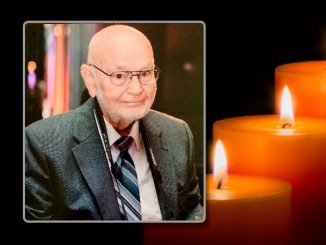
What to know when dealing with sinus Issues
So you wake up with your nose congested, coughing and a headache that isn’t helped by your usual pain relievers. You can’t stop coughing, especially when you lie down at night. So what is this horrible illness that has come over you?
It’s your sinuses!
Sinusitis has been the most common problem that presents to my office for the past few months. Patient’s typically present with a dry cough that gets worse when lying down at night, and often there is a headache that does not resolve with the usual pain relievers.
Sometimes, patients may also have a sore throat caused by the sinuses draining into the throat. These symptoms are usually found in the spring, but this year the symptoms seem to have no distinct beginning or end. This may be due to an environmental allergen that we have all been exposed to or in some cases, a bacteria or viral cause.
Due to this rise in disturbing symptoms, many people are flooding our offices and urgent care clinics looking for fast relief. After trying various at-home remedies, we find patients worn down and tired of fighting with the symptoms.
The usual treatments include antihistamines, steroid based nasal sprays, adrenergic agonist nasal sprays, cough expectorants, cough suppressants, decongestants and menthol rubs. Individually these are all appropriate choices, but if the appropriate medication for the correct symptom is not chosen, it can leave you frustrated and feeling no better. Clinicians are often compelled to use steroid injections to obtain the symptomatic relief that patients are so desperate for, but this is not without its challenges. Many patients do not realize the consequences of taking injectable steroids chronically.
The symptoms of nasal congestion will initially improve due to the strong anti-inflammatory effect that a steroid has, but our immune system will also be globally decreased at the same time.
There is a better way! Although there are limited pharmaceutical options for clinicians to prescribe to relieve the symptoms of sinus allergies, there are certainly better combinations of medications and therapies than others. First, addressing the correct symptom is important. Nasal and sinus congestion should be treated with a decongestant once or twice a day.
Alternatively, a steroid nasal spray should be used daily, especially if you have hypertension and a decongestant should not be used. Next, the post nasal drip that often accompanies the congestion can be dried up with an antihistamine which can also be used once or twice a day. This is also helpful in controlling the dry cough that is often worse when lying down at night. An additional therapy option is a cool mist humidifier used in the area of the home where you sleep to help moisturize the sinus and nasal tissue.
Alternate therapies can also be very effective in treating patients who suffer chronically from these difficult symptoms. The use of a Neti Pot to flush the sinuses of mucus build up and allergens is very helpful and can be used multiple times a day and there is even a battery powered sinus flusher on the market, as well. Be sure to use distilled water and not tap water when using these options to ensure safety.
Menthol rubs are still used along with humidifiers for symptom relief. Often patients are not aware that their intake of milk products increases their mucus production, so dietary restriction of milk can also be very helpful.
At the end of the day, the main goal for patients is to get back to feeling normal again. The solution to this is usually consistent use of the proper medication regimen.
Staying away from quickie solutions is the best approach toavoid causing even more medical problems down the line. If you’re experiencing sinusitis or any other primary care issue, and are interested in setting up an appointment to discuss your options, call (985) 764-7669 or visit MyOchsner.org.Dr. Monica Williams is a Board Certified Family Physician. She earned a Doctor of Medicine degree from Meharry Medical College located in Nashville, Tenn. She then completed a Family Medicine Residency at the University of Texas-Houston. Williams went on to practice in the community of Houston, Texas, where she offered primary care services to all ages at a community health center and in private practice. Her medical expertise is in disease prevention and adolescent health. She has also served as Chief Medical Officer. Williams enjoys impacting the health and well-being of health care facilities by educating her community and fellow providers on key preventative measures that make the greatest impact.




Be the first to comment